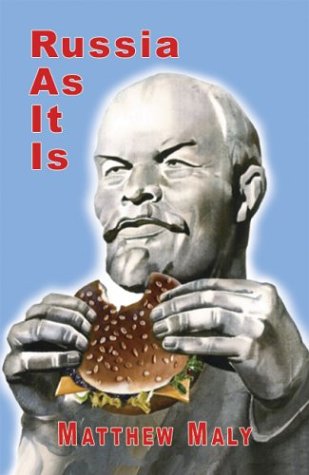Product desciption
Russia As It Is Transformation Of A Lose Lose Society Matthew Maly by Matthew Maly 9781591133919, 1591133912 instant download after payment.
Russian civilization has not developed the notions of private property and individual rights as they are understood in the West. Because of this, the Russian definitions of such terms as law, success, and fairness are different from the West's. Advanced western nations have long traditions of private property and economic freedoms, which allowed them to make a relatively smooth transition into the Industrial Age. But for Russia this transition required a great leap, and to compensate for the lack of these traditions, the leap had to have a very important symbolic, ideological dimension. As Russia built its factories, it also had to accommodate its historic quest for greatness, a worldview nurtured by Orthodox Christianity, and Russians' unique concept of fairness. Why did this leap take the form it did? One reason is that Russia for the most part has always been a lose/lose society, where individuals agree to endure suffering in exchange for the right to cause others to suffer. The concept of win/win is a relatively recent discovery – a discovery that can't be made without private property and individual rights. Once we understand the logic of Russia’s lose/lose culture and the compensatory devices that Russia has invented to make up for the absence of private property and individual rights, we can easily understand Russia’s history and the challenges it faces today. By accepting from the outset that Russia is different, this book avoids a discussion about whether a pair of chopsticks is a tablespoon or a teaspoon. Using simple language, humor, and real-life anecdotes, it describes Russia in a way that is understandable and useful for Westerners who want to successfully function in Russia. There is no enigma or mystery to Russia whatsoever. Russia As It Is: Transformation of a Lose/Lose Society does not contain a single "scientific" quote, or anything else that the lay reader will find difficult to understand. All you need is a basic familiarity with Russia's 20th-century history. The book leaves its reader knowing what to fear in Russia and what to love, what to regret and what to respect, how to appreciate Russia and communicate with Russians. The cover of the book shows a statue of Lenin eating a hamburger, and it illustrates the book's main conclusion: we gave Russia the hamburger, which is a symbol of capitalist consumption, but not a symbol of freedom and creativity. The real foundation of capitalism is the opportunity to create and to benefit from your creation, and this is what most Russians still lack. Russia did bite off a piece of capitalism, but its facial expression did not change: it is still inanimate, frozen in a lose/lose mentality that prevents democracy, private property, individual rights, and free enterprise from taking root.


